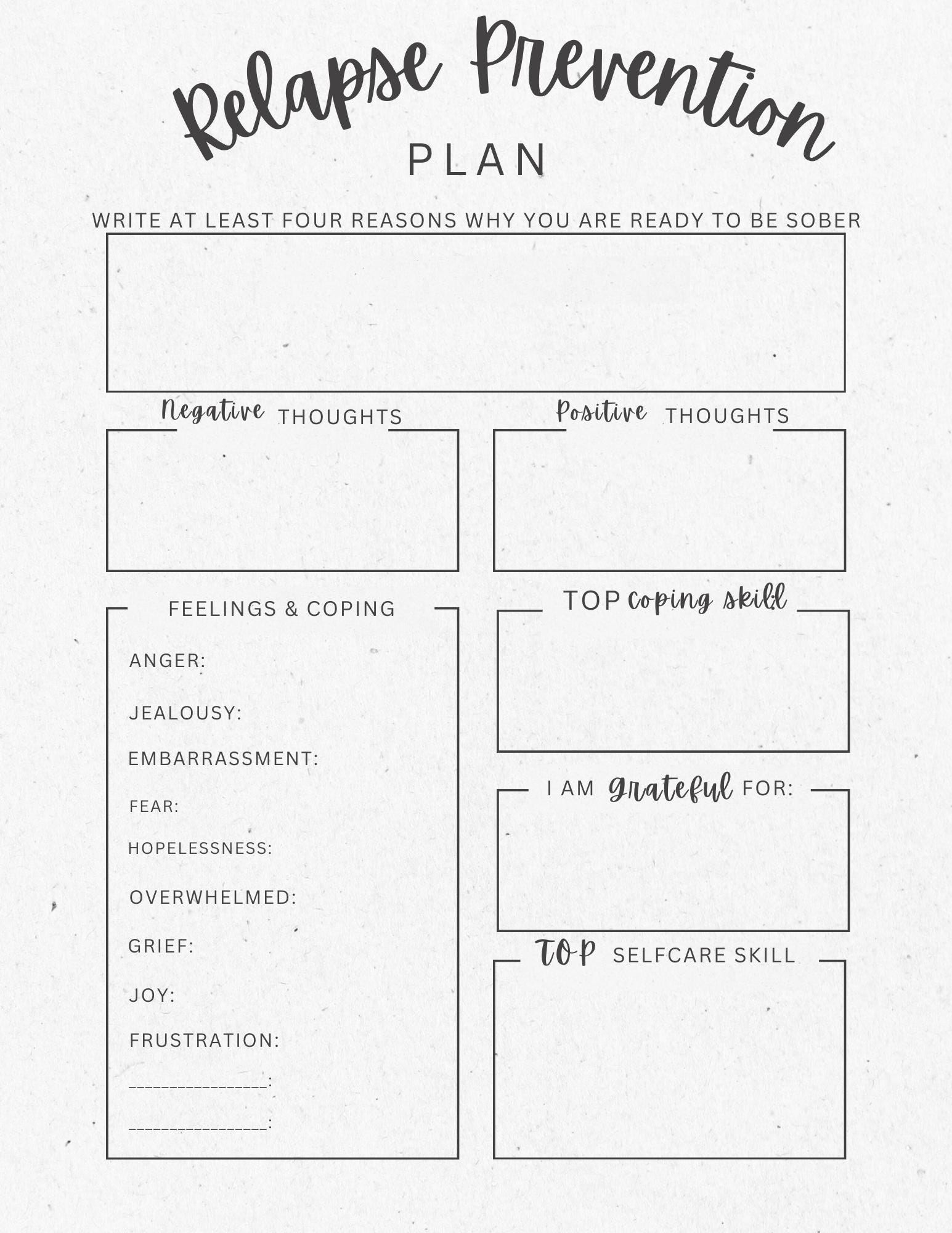Recovery from addiction is a challenging journey that requires commitment, support, and effective strategies to prevent relapse. A relapse prevention plan is a crucial tool that helps individuals identify triggers, develop coping mechanisms, and stay on track towards long-term sobriety.
Creating a relapse prevention plan is an essential step in the recovery process as it empowers individuals to take control of their sobriety and make informed decisions when faced with challenges. Having a plan in place can increase the likelihood of staying sober and provide a sense of security and stability during difficult times.
Printable Relapse Prevention Plan Worksheet PDF
A printable relapse prevention plan worksheet in PDF format is a convenient and accessible tool that individuals can use to outline their strategies for maintaining sobriety. This worksheet typically includes sections for identifying triggers, developing coping skills, setting goals, and creating a support network.
By using a printable worksheet, individuals can visually organize their thoughts and strategies for preventing relapse. This tangible document serves as a reminder of their commitment to sobriety and can be easily referenced in times of need.
Additionally, a printable relapse prevention plan worksheet in PDF format can be easily shared with a therapist, sponsor, or support group for feedback and accountability. This collaborative approach can enhance the effectiveness of the plan and provide additional support and guidance in maintaining sobriety.
Overall, a relapse prevention plan worksheet in PDF format is a valuable resource for individuals in recovery as it helps them stay focused, organized, and motivated on their journey towards sobriety. By taking proactive steps to prevent relapse, individuals can increase their chances of long-term success and lead a fulfilling and healthy life.
In conclusion, a printable relapse prevention plan worksheet in PDF format is an essential tool for individuals in recovery to stay on track towards sobriety. By outlining triggers, developing coping skills, and setting goals, individuals can empower themselves to overcome challenges and maintain their sobriety. Utilizing this worksheet as a visual guide and sharing it with a support network can enhance its effectiveness and provide additional support in the recovery process.
